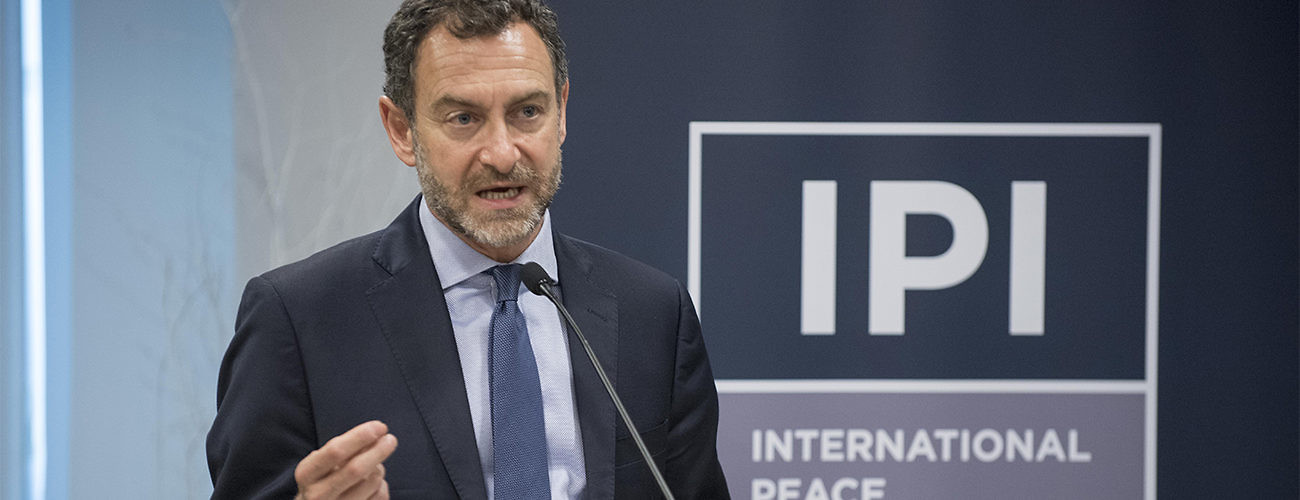The United Nations’ chief humanitarian officer in the Sahel region of Africa said that Nigeria was key to saving the region’s people from the ravages of the terrorist group Boko Haram, but that it needed the help of the international community to do so.
Toby Lanzer, UN Assistant Secretary-General and Regional Humanitarian Coordinator for the Sahel, noted that while it was the richest country in the region, Nigeria had come through difficult times due to the low price and falling production of oil, its top export.
“So to expect the Nigerians to come to the rescue of millions of people struck by Boko Haram is a tall order,” he told an IPI Humanitarian Series event on January 25. “The question of international solidarity with countries such as Nigeria is absolutely the way to go forward.”
The event was entitled “Nigeria and the Lake Chad Region: What is needed to prevent more suffering and to find a lasting solution,” and Mr. Lanzer described the area as one where “a cocktail of abject poverty, of climate change, of violent extremism has come together and really wrecked trade and ruined people’s lives.”
In more than 20 years working for the UN, Mr. Lanzer said, he had never encountered such poverty. “I saw adults sapped of energy who couldn’t stand up,” he said. “I saw an entire town devoid of 2-year-olds, 3-year-olds, 4-year-olds. When we asked, where are the children?—we were told they had died.”
The experience left him questioning the term “humanitarian crisis,” he said. “Because really I think the crisis is political, it’s a lack of development, it’s a crisis of our behavior in wealthy countries in the way we do not care for our planet, and the consequences that has on the climate.”
Mr. Lanzer expressed the need for international intervention in the Lake Chad region, where there are now well over 10 million people in need of humanitarian aid, and 7.1 million people who are severely food insecure.
He made a grim prediction: “Half a million children will die this year unless they get help.”
Across the larger Sahel, a semi-arid savannah region of northern Africa stretching from Senegal on the west coast to Eritrea on the east coast and encompassing southern Niger, northeastern Nigeria, and south-central Chad, Mr. Lanzer said that the population will likely double from 150 million people to 300 million people by 2040. He expects that current standard of living will become unsustainable as the region becomes more prone to drought induced by climate change.
As for the continued attacks by Boko Haram, he said it was important to “tackle the root causes.”
“The root causes lie in a lack of opportunity, a sense of marginalization, basic services that are not in place, and a lack of jobs.”








